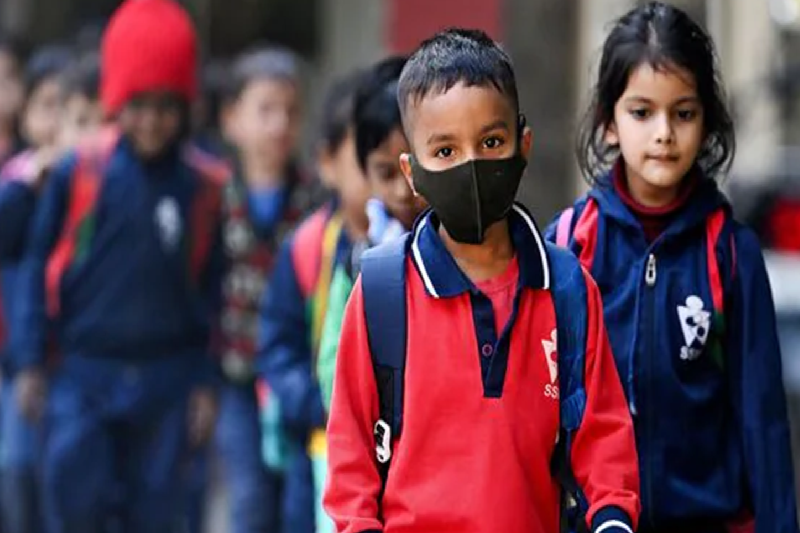
‘Free Meals, Uniform & Stationery’: MCD Launches Outreach Drive to Boost School Enrolment
The Municipal Corporation of Delhi (MCD) is taking significant steps to increase student enrolment in its schools after witnessing a slight decline in recent times. With approximately 6.5 lakh students currently enrolled across MCD schools, the corporation’s goal is to increase this number by at least one lakh in the coming months. The initiative focuses on engaging with communities directly and promoting the benefits that MCD schools offer, aiming to encourage more parents to enrol their children.
Outreach Drive: Teachers to Connect with Communities Every Saturday
As part of the new outreach strategy, the MCD’s Education Committee has planned a unique approach where two teachers from each MCD school will visit various neighbourhoods and clusters every Saturday. The objective is to meet parents and families face-to-face to promote the advantages of sending their children to MCD-run schools. Education Committee Chairperson Yogesh Verma explained that these visits will serve as platforms to inform families about the free benefits available to students, such as nutritious meals, free uniforms, and stationery supplies.
The personalised approach aims to remove barriers that might prevent parents from enrolling their children in school. By providing clear information and support directly in their communities, the MCD hopes to build trust and motivate families to prioritise education. To encourage teachers to actively participate and achieve higher enrolment numbers, the corporation will introduce a ‘Nigam Award’. This award will recognise and reward teachers who successfully bring more students into the school system.
Holistic Support for Children with Disabilities: Expanding Therapy Services
In addition to increasing general enrolments, the Delhi government is expanding support services for children with disabilities enrolled in government schools. Through resource centres managed by the Education department’s Inclusive Education branch, students will now have access to an extended range of therapeutic services including physiotherapy, occupational therapy, speech therapy, and counselling support from clinical psychologists.
Currently, Delhi has 24 such resource centres, of which 10 new centres were recently inaugurated by Home Minister Amit Shah as part of the government’s ‘Sewa Pakhwada’ campaign. These centres are expected to benefit over 12,500 children with disabilities by offering not just therapy, but also family counselling, sensory and virtual reality rooms, and formal assessment facilities.
Improved Coordination and Operational Guidelines for Resource Centres
To ensure the effective delivery of these services, schools and resource centres have been directed to follow strict guidelines outlined in a recent order by the Directorate of Education’s Inclusive Education branch. The guidelines emphasise coordination among Special Education Teachers (SETs), Resource Centre Coordinators, and therapists to provide seamless support to children.
The resource centres operate six days a week, including during school vacations, from 9 am to 5 pm. Therapy sessions are structured to last 45 minutes each, with up to eight sessions held daily. This comprehensive timetable ensures that a significant number of children can access therapy services regularly without disrupting their school routines.
Impact and Vision for the Future
The MCD’s renewed focus on boosting enrolment and providing holistic support to children with disabilities represents a progressive step towards inclusive education in Delhi. By addressing both enrolment challenges and the diverse needs of special students, the corporation is laying the foundation for a more equitable and accessible education system.
Parents and community members are encouraged to engage with the outreach activities and take advantage of the free benefits and support services provided by MCD schools. As these efforts continue, the hope is that the number of students in MCD schools will increase significantly, ensuring more children in Delhi receive quality education in a supportive environment.
Conclusion
The MCD’s outreach drive, combined with enhanced therapeutic support for children with disabilities, is a comprehensive approach to strengthening education in Delhi. Free meals, uniforms, and stationery remain key incentives, while the new resource centres ensure inclusive education for children with special needs. With active community engagement and motivated teaching staff, the corporation aims to transform the educational landscape and increase enrolment by at least 100,000 students in the near future.
For families in Delhi, this initiative presents an opportunity to access quality education and support services at no cost, fostering a brighter and more inclusive future for the city’s children.



